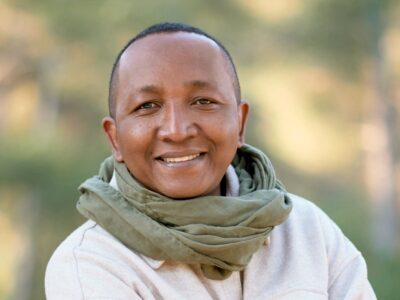Ny tranokala mpilaza vaovao Afrik.com mamoaka lahatsoratra fa ny tenin-jatozo afrikana [argot] dia nahazo vahana ao amin'ny teny frantsay [fr], ary milaza antsika fa tsy dia ironan'ireo mpanao [rap] firy intsony ny Verlan [teny mivadika] :
For a long time, there have been certain words, such as [Arabic greetings] “Salam alaykum” or “hamdu’llah”, which everyone could understand, even though they are not part of the French language. Nowadays, we are witnessing a new wave of words of African origin (black and Maghreb, among others), which fit well into the language spoken by many young people, whether they are originally from Africa or from Europe. As surprising as it may seem, this “enrichment” comes from the “bzèze” (breasts) of their mothers. Since most of them incorporate words spoken in the mother language of their parents.
Fotoana ela zay, Misy teny maro, toy ny [fiarabana Arabo] “Salam alaykum” ary “hamdu'llah”, izay fantatry ny rehetra ny dikany, eny fa na dia tsy teny frantsay aza. Amin'izao fotoana izao, vavolombelona izahay fa misy onja teny avy amin'ny teny afrikana no niaviany (mainty sy Magrebiana, ankoatra ny hafa), izay mifanaraka tokoa amin'ny fitenin'ny tanora, avy any Afrika na Eoropa no niaviany. Mety hahagaga ihany ny fitrangany, fa avy amin'ny “bzèze”(nono) -ndreniny izany “fitomboan-karena” izany. Ny akamaroany tsinona dia fiteny avy amin'ny tenin'ny ray aman-dreniny.
Ohatra, Ivorianina no namorona ny tenin-jatovo antsoiny hoe Nouchi [fr]. Ao amin'ny blaoginy, Behem nanoratra “Ny fomba fiteny 10 amin'ny Nouchi mahazatra indrindra” [fr]:
This is a common language created in the 1980s, which is based on French, incorporating parts of the many vernacular languages found in our country. Poorly-educated youths in Abidjan, who had not learned French well, had to invent a language which incorporated their various dialects. So, this language was associated with the image of juvenile delinquents. This can be seen in its etymology: The word “nou”, in the language of the Malinké ethnic group, in the north part of Côte d’Ivoire, means “the nose”. Meanwhile, the word “chi” means “hair”. The conjunction “Nouchi” means “moustache”, in reference to moustachioed thugs whom everyone was afraid of. Today, in Abidjan, “Nouchi” still means “a thug”.
For a long time, Nouchi was the preserve of street children, but later it managed to expand its presence, to the point that it is spoken today by all segments of the population. The President of the Republic himself is no exception. Nouchi has also been exported abroad, thanks to Ivorian Zouglou music, and thus it has reached the entire world.
Teraka ny taona 1980, Fiteny hafakely mifototra amin'ny teny frantsay izay fifangaroana tenim-pirenena maro hita ao amin'ny firenenay. Voatery namorona fiteny ahitana tenim-paritra samihafa ny zatovo tsy nahita fianarana loatra ao Abidjan, izay tsy nianatra teny frantsay loatra. Io fiteny io dia nampiarahana tamin'ny tanora maditra. Hita taratra mihitsy zany amin'ny fiavian'ny teny: Ny teny hoe “nou”, fiteny avy ao amin'ny foko Malinké, any amin'ny faritra avaratr'i Cote d'Ivoire, dia midika hoe “orona”. Etsy andaniny, ny voambolana hoe “chi” dia midika hoe “volo”. Ny fanambara-teny “Nouchi” dia midika hoe “volombava” [volon'orona] , mba ilazana ny jiolahimboto be volombava atahoran'ny olona ireny. Amin'izao fotoana izao ny dikan'ny “Nouchi” any Abidjan dia hoe “jiolahimboto”.
Efa hatramin'ny ela ny Nouchi no [fiteny] voatahirin'ny ankizy amoron-dalana, fa taty aoriana vao nihanahazo vahana kokoa ka ny ampahany betsaka amin'ny mponina no mampiasa azy. Tsy avahana ihany koa ny Prezidan'ny Repoblika tenany. Niondrana nankany ivelany ihany koa ny Nouchi, noho ny mozika Ivoariana Zouglou, ka nahatratra ny manerana izao tontolo izao.






